- Home
- Sebastian Faulks
Charlotte Gray Page 15
Charlotte Gray Read online
Page 15
‘I’m trying to find out what’s happened to this boy’s parents.’
Bernard looked over the counter to where André stood, holding the fabric of Julien’s trouser leg.
‘What’s his name?’
‘Duguay. They live in the next street to mine.’
Bernard’s gaze flickered; then he looked down. He coughed and picked up some papers from the ledge below the counter.
‘ I think . . . let me see . . . yes . . . Duguay, Duguay, Duguay . . . just a minute . . . Yes, here we are.’ His finger came to rest on a typed list.
‘Well?’ said Julien. ‘What’s happened to them?’
‘Oh well, I don’t really know. It’s nothing to do with the gendarmerie, you understand. Some sort of order from the Government as far as I know.’
‘Yes, but what happened?’
Bernard looked unhappy ‘I . . . I think . . . Listen, do you want to come into the office for a moment, leave the boy here?’
Julien looked down at André’s hopeless face. To be left for a moment in an anteroom was not the worst problem he was now confronting. He nodded and followed Bernard through a glass door. ‘I won’t be a minute, André.’
André sat on a rush-seated chair against the wall and swung his legs. He had stopped crying, but his mouth was filled with a peculiar taste. He felt extraordinarily aware of himself: of his breathing, his skin, the room about him. The seconds would not pass: it was as though time had stalled and had somehow wrapped itself around him with this dry flavour of abandonment.
Bernard lit a cigarette in the office. ‘It’s nothing to do with us,’ he said, pulling an ashtray out from beneath some papers on the desk. He sat down at his chair and indicated a seat on the other side.
Julien shook his head and stayed standing. ‘Just tell me.’
‘We had a visit from the Vichy police. Those bastards, I hate them. Don’t get me wrong, I like the Marshal. I respect him. But those men . . . Anyway, this officer comes along and shows his papers and says he’s got a list of people in the region.’
‘Jews?’
Bernard nodded. ‘Well, Lavaurette, you know as well as I do what it’s like. No one’s been or come since the war, really. Immigrants, I mean. It’s not like Paris or Clermont. I didn’t know the Duguays were . . . I’m sure I’ve seen them in church. Anyway, there was a train coming up from the south, Montauban, Agen or somewhere. A special train and they had to be on it. That’s what we were told.’
‘A special train?’
Bernard flinched at the sound of Julien’s voice; there was an incredulous, unforgiving edge to it. He looked up at him, but could not hold his gaze.
Julien said, ‘So then what happened? They came and took them?’
Bernard swallowed. ‘You probably heard what happened in Paris last month. There was a huge round-up there and they took them to some sports stadium. They had to put it off a bit because they suddenly realised it was the thirteenth, you know, the day before July the fourteenth and they thought it wouldn’t be . . . wouldn’t be . . .’
‘Festive?’
Bernard coughed. Julien could see the sweat beginning to dampen his shirt collar where it dug into his neck. The cigarette had left a single strand of tobacco on his lower lip.
Bernard looked up at him and his eyes were pleading. ‘I’m just a gendarme, I do what I’m told, I don’t mean any harm. I just go about the town and try to help. I just—’
‘You did it yourself, didn’t you?’
‘What?’
‘You arrested them yourself, didn’t you?’
Bernard’s eyes went back to the desk. He rested his chin in his cupped hands and sighed. The breath came out jerkily. ‘If it hadn’t been me, they would have got someone else to do it. That family was going on the train one way or another, that’s what you have to understand.’
Bernard stood up. He seemed to be rallying: he met Julien’s eye again. ‘Anyway, I don’t have to explain to you. I’ve told you what I know because . . . well, because I know you. Because you asked. But if you think anyone in Lavaurette is going to blame me for obeying orders, you’re mad. This is a law-abiding town. We respect the Government and we do what we’re told. That’s the only way forward.’
‘Where’s the train taking them, then?’
‘That I don’t know. There are a number of refugee camps where—’
‘The Duguays are not refugees. They’re French. They live here.’
Bernard shrugged. ‘Well, that’s where they’ll take them. It’s just until the end of the war. Apparently she’s a foreigner, and they haven’t been here long. All these people pouring in from abroad, they have to be sorted out. I’m sure they’ll be all right.’
‘Didn’t the documents show where the train was going?’
‘I dare say they did, but I didn’t see them. I was just told to deliver the family to the station.’ Bernard looked down. ‘Then they were angry because I only brought the parents.’
‘Why didn’t you take the children?’
‘I couldn’t find them. The little one you’ve got, he must have been out in the fields. The other one, I . . . I couldn’t find.’
‘But he’s only three or four. I’ve seen him often with his mother. She wouldn’t have left him on his own.’
‘I couldn’t find him. That’s all I’m saying. We weren’t given enough time. I wasn’t given the train time until this morning.’
‘Not like the gendarmerie to be so slipshod.’
Bernard said nothing. He took another cigarette from the packet, poked the loose tobacco in with his finger and thumped the little tube on the side of his desk. He wiped the back of his hand across his forehead before lighting the cigarette. He offered the packet to Julien who shook his head.
‘I wonder where he is,’ said Julien. ‘The little one. Jacob, I think his name is.’
‘It’s a mystery. Probably with a neighbour or something. Now, hadn’t you better go and look after the other boy? They’ll be back, you know.’
‘Aren’t you going to arrest him? I’m sure they’d put on another train for him.’
‘You’re a difficult bastard, aren’t you? Can’t you see, I’m trying to help you? As far as I’m concerned, both boys have vanished. Now for God’s sake take him away.’
‘Tell me where the other one is. Tell me where the other one is and I’ll never mention your part in this to anyone. This whole interview will be forgotten.’
Bernard’s tongue ran out over his lips and this time he found the shred of tobacco. He pulled it back with his front teeth and worked it to the front of his tongue, from which he picked it with his finger and thumb.
‘She was sobbing. The mother, she was clinging on to me. She wrapped herself round my feet so I couldn’t move.’ Bernard turned his back on Julien and looked out of the window. He pushed it open, and from outside came the sandy thud and metal click of boules; they heard deep, laughing male voices, then the peaceful sound of glasses and a bottle of pastis jangling on a tin tray that the waiter was bringing from the café.
‘I was worried we were going to be late for the train. The father was weeping too. They begged me. I didn’t know what to do. I shouldn’t be in these situations . . . It was terrible.’ Bernard’s voice began to shake. He turned back from the window. He had gone scarlet in the face and his fists were clenched by the side of his uniform.
‘They took the child to the door of the cellar. He was screaming. The mother was hysterical. She was lying on the floor. In the end the father had to drag her off. He pushed the child inside and locked the door. I . . . I had to let them do it. Then I got them out and took them by the back streets. We didn’t use the avenue. I shouldn’t have done it. I’m in trouble now.’
Bernard was shaking. He rubbed the back of his sleeve across his purple cheek, where a tear had run.
Julien said, ‘You’re not in trouble. I’ll take care of it. Where’s the key?’
Bernard put his hand into his pocket and si
lently withdrew a rusted iron key, which he handed to Julien. He opened his mouth to speak, then closed it. Julien, who had remained pale and apparently impassive, looked at him and put his head interrogatively to one side.
Bernard’s confusion of feeling resolved itself into fearful anger. ‘It’s not my fault. I didn’t want to do any of this. Don’t look at me like that. I have a wife and family, too, you know. They’re my first priority, they’re the ones I have to think of before anyone else, before any Jews or anyone. You’re not married, are you? Well, you wouldn’t understand. If this gets out I’m finished. Do you promise me? Do you give me your absolute word?’
‘Yes.’ Julien laid his hand on Bernard’s arm. ‘I give you my word. I’ll say nothing of what’s passed between us. In return, when they ask you about the children, you just stick to your story. They weren’t there, and you don’t know where they are. All right?’
Bernard nodded. Julien held out his hand and Bernard took it. As Julien was opening the door to leave, Bernard said, ‘Why are you so interested in these children? Why have you taken it on yourself?’
Julien sighed. ‘It was just a chance. I saw the child and I thought I should help. It was an accident.’
He went back into the anteroom, where André was still sitting on his chair, hoping for time and the world to start again.
‘I think we’re going to have to be very careful now,’ said Julien, as they came into the Place de l’Eglise. ‘I think it would be a good idea if I went on ahead to make sure everything’s all right. You stay . . .’ He looked around and stopped, as though some idea had stirred in his mind. ‘. . . in the church. I’ll come back and get you in a minute.’
André sat in a dark corner chosen by Julien, looking at a statue of a marble saint, a cloth or handkerchief clasped in her cold fingers. The moment pressed on him with unwanted clarity: the smell of old incense, the wood on his thighs, the statue of a woman who was not his mother, the pile of cloth-covered books on the ledge beside him. It was not real.
‘All right. Come on.’ Julien was standing in the doorway. ‘Do your parents leave a key somewhere?’
André nodded. Along the wall of the house was a narrow alley that led to a side entrance to the garden. Julien followed him over the stony path and André pushed at a wrought-iron gate whose opening caused a sweet-sounding bell to jangle.
The Duguays’ small garden had a flowerbed at one end in which a moat was being dug; at the other end, adjoining the house, was a brick-paved terrace with over-arching ironwork twined by prodigal jasmine. André bent down and lifted up a stone from under which he pulled out a key. He opened a door into the kitchen. There was a choking smell from a stockpot on the cooker which had burned dry. Julien turned off the heat beneath the blackened mess. The table was set with four places; there was a carafe of water and six slices of bread in a wicker basket.
‘Where’s the cellar?’
‘This way.’
The Duguays’ hall was cool and dark; there were pink glass light fittings on the wall and a large framed sepia photograph of a Duguay forebear in uniform with medals and drooping moustaches. Julien fitted the key into the lock and turned it. He took André’s hand as they made their way down the dark stairs.
‘Jacob? Jacob? Are you there?’
André called as well, a theatrical note in his high, clear voice. ‘Jacob?’
‘We need a candle. Do you know where they are?’
‘I bought some from the shop. I . . . I’ve left them somewhere.’
‘There must be some other ones in the kitchen. Go and have a look. I’ve got some matches.’
While André was gone, Julien made his way slowly down the steps, dragging his hand along the cold stone wall. ‘Jacob?’ he called softly. ‘Jacob?’
André’s voice hissed at the top of the steps. ‘I’ve found one.’ Julien first lit a match to show him the way down, and then the candle André held out to him. The cellar had a beaten earth floor and a row of empty wine bins against one wall. The candle threw shadows up to the thick wooden beams that supported the hallway and kitchen above.
‘Look.’ André was pointing. There was a heap on the floor in the corner. As they moved closer, the light of the candle showed it to be a small boy, curled up on his side, asleep.
André reached out and touched him. ‘Jacob.’ His whisper was frightened and urgent. ‘Jacob.’ He shook his brother’s shoulders and the boy stirred and sat up. Then he climbed abruptly to his feet, his eyes wide.
Julien wondered what they would do. In his experience, sisters and brothers at this age did not embrace unless in some demonstration of false sentiment demanded by their parents.
André took Jacob’s arm rather formally and kissed his hand. Jacob said nothing, but looked round in bewilderment. The candlelight showed the big, dark eyes, sunk in his face, fogged by sleep and confusion. André held out his arms to him and Jacob went into his embrace, treading on his foot, staggering a little, as though it was an unnatural process they had learned from watching older people.
‘Monsieur? What shall we do now?’
‘I think you’d better come with me. My house is in the next street. You can stay with me until I find you a better home.’
‘Where’s my mother?’ said André.
‘I don’t know. She and your father have gone somewhere on the train. They had to leave in a hurry, otherwise they would have said goodbye.’ Julien knelt down and held the boys’ hands. ‘You’re going to have to be brave. It may be some time before you see your parents, but you must try not to worry. I’ll make sure you are properly looked after. You can trust me. I’ll help you.’
He felt four eyes running back and forth across his face in the gloom, then knelt on the beaten earth and clasped the two small, wiry bodies in his arms.
Towards ten o’clock that evening Julien Levade went down to the Café du Centre. The streets of Lavaurette were shiny from a sudden summer storm, and he walked carefully over the unlit pavements. Through half-closed shutters and windows reopened after the rain, he heard the murmur of voices; a harsh kitchen light showed a tired man recorking a bottle of wine while his wife cleared dishes from the oilcloth-covered table. In the dark street there were occasional signboards on the outside of the houses: a dealer in paraffin, an upholsterer, a repairer of electrical goods. Few customers were ever seen to go into these premises, but an afternoon knock on the door with a broken wireless would invariably raise someone, even if it was only a child, who, with lip-licking concentration, would write out thick brown labels and tie them to the goods to await the father’s return.
Julien ordered a glass of wine at the bar of the Café du Centre. Monsieur Gayral, the owner, a stooped, defeated man of only sixty who looked twenty years more, pushed it across the zinc-topped bar. His untrimmed eyebrows hung down either side of his face in superfluous emphasis of his despondent manner. Madame Gayral, who was waiting in the dining room, was a fussy, proper, little woman with brightly dyed red hair and all the energy her husband had surrendered. Gayral was nevertheless a popular host because he was so discreet: nothing that was said in the Café du Centre was repeated by him, and his melancholic manner stretched to apparent deafness in the face of extreme opinions or gossip of a prurience (usually speculations of paternity) shocking even by the standards of the bar. Among those who had benefited from his discretion Gayral enjoyed a reputation as a man of great wisdom, albeit guarded, and a startling dry wit, the more legendary for being unexpressed.
Julien had not eaten, but was wary of the dining room. Even in the days of plenty, Madame Gayral’s cuisine had been nervous. She disguised her lack of confidence by serving many different courses in the hope, presumably, that one of them at least might please. Following a thin soup might come ham and a piece of melon, some sliced herring in vinegar, then a knob of preserved duck with peas, a damp green salad, then a grilled sausage with purée of potatoes, a trolley of cheeses and various milk-based desserts. It all added up to less than the su
m of its parts; the diners typically felt bloated yet unsatisfied. Under the Occupation, by which the Vichy Government agreed that the Germans needed to eat more than the French, and that France, as well as paying 20 million francs a day for the privilege of being occupied, should yield the best part of its produce to the Occupier, dinner at the Café du Centre had become hazardous. It was only Madame Gayral’s inspired idea to hire Irène Galliot, the ironmonger’s daughter, as dining-room waitress that kept the male clientele faithful. Irène was her mother’s daughter, they agreed – by which they meant formal, unyielding, almost pitiless – yet strangely more handsome. Roudil gallantly believed that this proved Madame Galliot must herself have been a beauty when young; most people thought it showed only that old Galliot, whom some of them remembered from before his death in the spring slaughters of the Chemin des Dames in 1917, was not the girl’s father. Irène had thick, wavy brown hair, slender legs with only a hint – an exciting hint to many of the men in Lavaurette – of peasant heaviness about the hip, a numbingly effective if rare smile, aristocratically (suspiciously) fair skin and a face which, although it was of a kind that might perhaps not wear well, could only fairly be described as beautiful.
It was Irène’s day off, and Madame Gayral was clearing the plates in the dining room from those disappointed male clients too slow-witted to have worked out the waitress’s weekly time-table. Madame Gayral’s absence in turn meant that conversation in the bar was even more unguarded than usual. Even Gayral himself was fired up to speak, and his opinion was granted a surprised but respectful silence.
‘Some people say Laval’s not to be trusted, but I say he’s a very clever man. Every time one of these Communists shot a German soldier in the Occupied Zone the Germans would take ten innocent people and execute them. Now Laval’s done a bargain. Now we have French police in the Occupied Zone, and they administer discipline. That’s how it should be: France policed by the French, occupied or not.’
There was a pause while the others took time to digest Gayral’s opinion. A man called Benech, who was a schoolmaster, said respectfully, ‘You may be right there, you may well be right. But you must admit that the Boche soldiers have behaved impeccably – in the face of great provocation, too.’

 Devil May Care
Devil May Care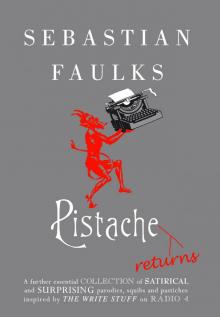 Pistache Returns
Pistache Returns The Girl at the Lion D'Or
The Girl at the Lion D'Or Pistache
Pistache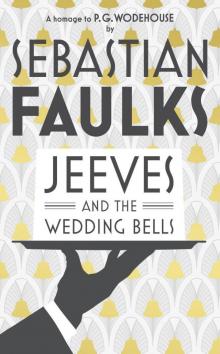 Jeeves and the Wedding Bells
Jeeves and the Wedding Bells A Week in December
A Week in December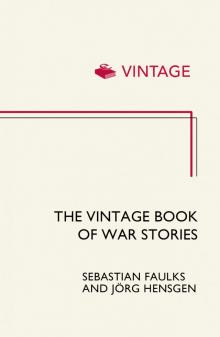 The Vintage Book of War Stories
The Vintage Book of War Stories Engleby
Engleby Birdsong
Birdsong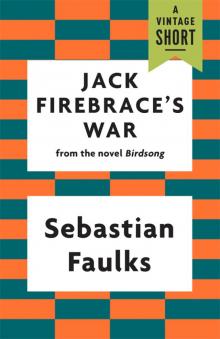 Jack Firebrace's War
Jack Firebrace's War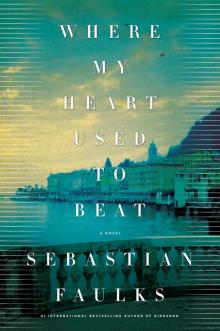 Where My Heart Used to Beat
Where My Heart Used to Beat A Possible Life
A Possible Life The Fatal Englishman: Three Short Lives
The Fatal Englishman: Three Short Lives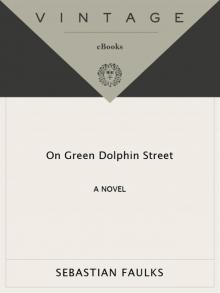 On Green Dolphin Street
On Green Dolphin Street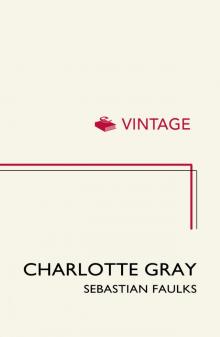 Charlotte Gray
Charlotte Gray A Broken World: Letters, Diaries and Memories of the Great War
A Broken World: Letters, Diaries and Memories of the Great War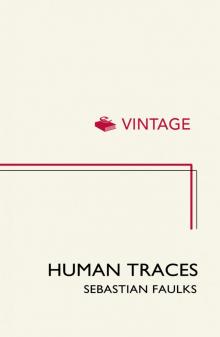 Human Traces
Human Traces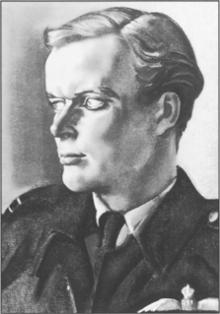 The Fatal Englishman
The Fatal Englishman A Broken World
A Broken World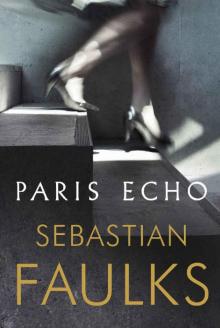 Paris Echo
Paris Echo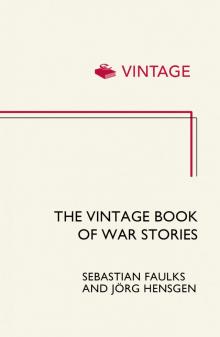 War Stories
War Stories Girl At the Lion d'Or
Girl At the Lion d'Or